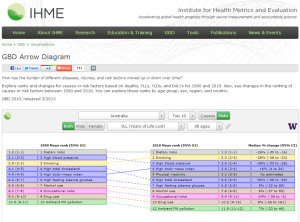Heyworth is the founder and former CEO of the ALS Therapy Development Institute (ALS TDI), a non-profit biotechnology organization driven to developing treatments for amyotrophic lateral sclerosis (ALS). The first half of Heyworth’s talk focused on his emotional motivation for ALS TDI, which began when his younger brother Stephen was diagnosed with ALS. Heyworth’s investigation into the options available for managing his brother’s disease revealed a disturbing fact: as much as 80% of ALS research outcomes could not be replicated, making much of the support for ALS clinical trials statistically unsubstantiated.
Heyworth raised the question of how we can move forward when there are faults in the data at the heart of our assumptions. The fact that ALS, considered one of the best-researched medical conditions, might have no real supportable data drove Heyworth to establish ALS TDI in 1999 with the aim to champion a new model of disease research based outside of academia and for-profit organizations. Heyworth’s story was captured by author Jonathan Weiner in His Brother’s Keeper and by the PBS documentary So Much So Fast. Heywood’s discussion also touched on his work as co-founder of PatientsLikeMe, an online resource for disease-specific medical information. The tool allows patients to track their diseases and share this information with others dealing with the same conditions. PatientsLikeMe disrupts the current system of clinical trials with patient-driven databases that provide insight into the efficacy of specific treatments.
Taken from: http://www.medgadget.com/2013/11/futuremed-day-4-the-end-of-the-beginning.html
